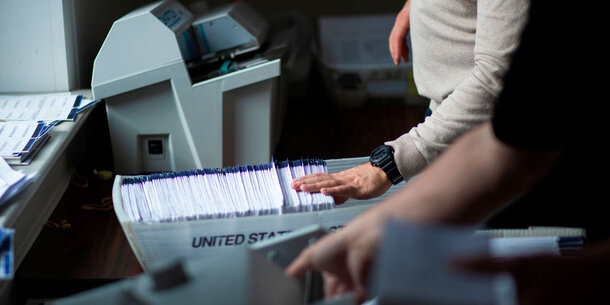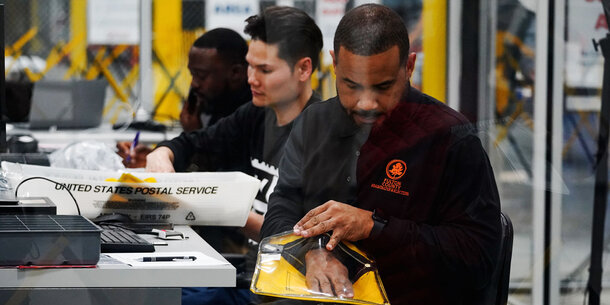You’re reading The Briefing, Michael Waldman’s weekly newsletter. Click here to receive it every week in your inbox.
At the close of last week’s January 6 hearing, Rep. Liz Cheney (R-WY) called out the “50-, 60-, and 70-year-old men who hide themselves behind executive privilege.” She didn’t need to name them — we know who they are.
But they’re not hiding. Far from it. Steve Bannon, convicted last week of contempt of Congress, hosts a popular right-wing podcast. Former White House Chief of Staff Mark Meadows is the senior partner of the Conservative Partnership Institute, a DC-based group formed to support far-right candidates.
Worse, both men are players in a nationwide effort to sow doubt and misinformation about upcoming elections. As my colleague Mekela Panditharatne writes in a new Brennan Center analysis, the Conservative Partnership Institute is working to plant election deniers — people who believe, contrary to all evidence, that the 2020 election was decided by voter fraud — at all levels of our electoral machinery. Staffers in elections offices, poll workers, poll monitors. If Meadows and Bannon succeed, these crucial positions in our democracy could soon become contaminated by people who live in a fantasy world where voter fraud is rampant. “We are arming the army of patriots, that’s our goal,” operative Cleta Mitchell told Bannon on his podcast.
The Conservative Partnership Institute has produced a written guide for those seeking to cast doubt on future elections. It urges followers to ensure that “ideological operatives cannot prey upon vulnerable voters” such as senior citizens. That’s rich. During the 2020 election, the Wisconsin Election Commission made the entirely necessary decision to slash the red tape required for nursing home residents to get mail-in ballots — the only way to uphold their right to vote during the height of the COVID-19 pandemic. Following Donald Trump’s defeat, the ideological allies of the Conservative Partnership Institute assailed that decision and sought to dissolve the commission in retribution. That’s enough to give hypocrisy a bad name.
The handbook makes phony claims of nonpartisanship while also urging followers to label staffers in the state attorney general’s office as “friend or foe.” It equips readers with just enough information to be dangerous, but not nearly enough to be helpful. For example, it encourages people to try to identify “bad addresses” on voter rolls but doesn’t instruct them on how to differentiate an incorrect address from a student away at college. As a result, professional election officials — the people who actually know what they’re doing — will be inundated with baseless challenges to voter registrations.
It is a recipe for chaos. But that’s not a bug in the system — it’s the goal of the Conservative Partnership Institute. If it can sow enough doubt and confusion after an election defeat, it might be able to convince the legislature to overturn the clearly articulated will of the people. It didn’t work in 2020, but they’ll try again. Let’s not wait until the chaos machine clicks on to respond. Let’s insulate our system against these attacks right now.



